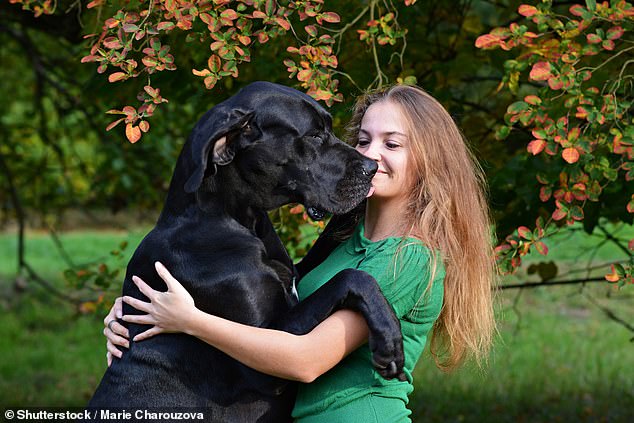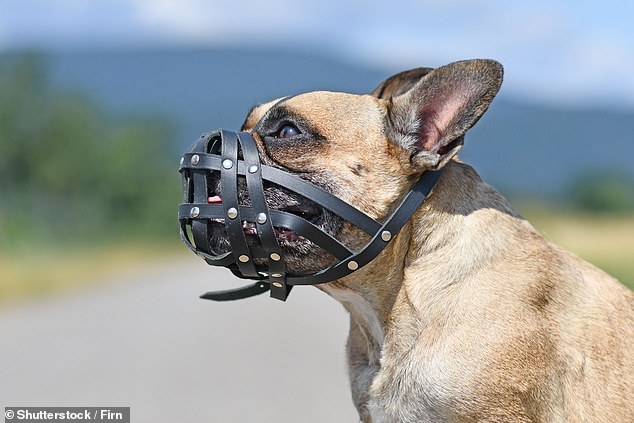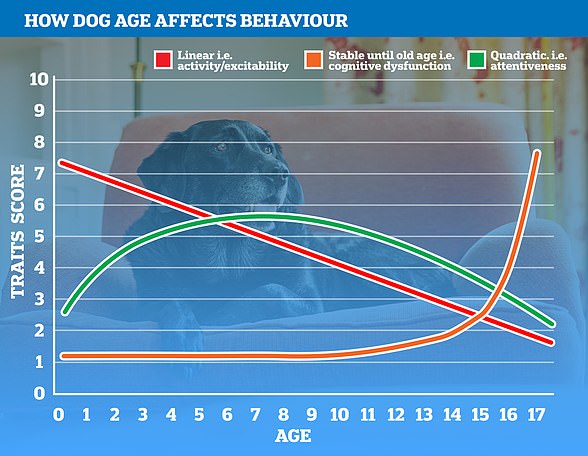Gentle giants! Heavier dogs are significantly LESS likely to be aggressive, study finds
>
If you’re afraid of dogs, you may find yourself wary around large pooches such as Dobermans or Great Danes.
But the results of a new study could refocus your attention away from these breeds, and towards smaller pups.
Researchers from the University of Sao Paulo have revealed that heavier dogs tend to be more obedient than lighter pets.
In contrast, small, short-snouted breeds such as Pugs, Bulldogs and Shih Tzus are the most badly-behaved breeds, according to the study.

If you’re afraid of dogs, you may find yourself wary around large pooches such as Dobermans or Great Danes (stock image). But the results of a new study could refocus your attention away from these breeds, and towards smaller pups
In the study, the team set out to understand the factors that influence aggression in pet dogs.
They enlisted 665 pet dogs across 57 breeds of varying size.
The dogs’ owners completed three online questionnaires – one on themselves, one on the characteristics of their pet, and one on the nature of any aggressive behaviour, such as barking or attacking.
The results revealed that the heavier the dog, the less likely they were to display aggressive behaviours.
In fact, for every extra 2.2lbs (1kg) of body mass, aggressive behaviour was found to decrease by three per cent.
However, small dogs with short snouts were found to be the most aggressive.
Flavio Ayrosa, first author of the study, said: ‘Aggressiveness toward the owner was 79% more likely among brachycephalic than mesocephalic dogs.’
Brachycephalic dogs have short, squashed faces and include Pugs, Bulldogs, Boston Terriers and Shih Tzus.
In contrast, mesocephalic breeds including Beagles, Golden Retrievers and Labrador Retrievers have more intermediate skulls.
The pet’s sex also appears to influence its aggression.
‘The likelihood of aggressive behaviour toward the owner was 40% lower among female dogs than among males,’ Mr Ayrosa said.
In addition, the team found a link between the owner’s own characteristics and their pet’s aggression.
Aggression in dogs was 73 per cent more frequent among male owners than female owners, while dogs walked every day by their owners were less aggressive.


Small, short-snouted breeds such as Pugs, Bulldogs and Shih Tzus are the most badly-behaved breeds, according to the study. Pictured: a French Bulldog wearing a muzzle
However, the researchers caution that these findings are not cause-and-effect correlations.
‘We found relationships, but it’s impossible to say which comes first,’ Mr Ayrosa explained.
‘In the case of the factor “walking the dog”, for example, it may be that people walked their dog less because the animal was aggressive, or the dog may have become aggressive because the owner didn’t take it out enough.
‘Traits such as weight, height, cranial morphology, sex and age influence the interaction between dogs and their environment.
‘They may spend more time inside the home because of them, for example.’
The researchers hope the findings will highlight that dog behaviour isn’t solely down to the animal, and is instead a result of the interaction between the animal and its contect.
‘The environment and the owner-pet relationship, as well as morphology, are all factors that influence how pets interact with us and how we interact with them,’ said Professor Briseida de Resende, an author of the study.
If you enjoyed this article…
Use food puzzles and blast classical music to help your pup shift the pounds, scientists say
Dogs’ tails play little or no role in running or jumping – and are more likely used for communication
As the Belgian Malinois is named the world’s most intelligent breed, experts reveal the DUMBEST dogs

